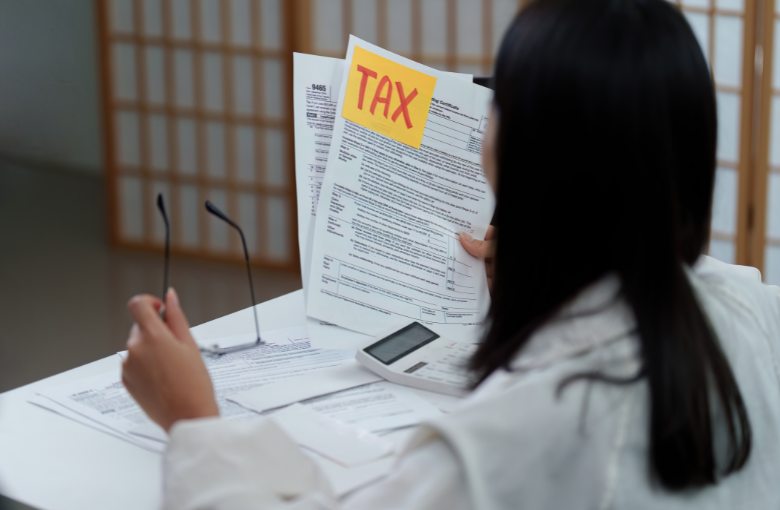Bookkeeping has been a critical part of our world, from the importance of record-keeping for early trading cultures along the Silk Road to helping to anthologize information throughout the Industrial Revolution and the rise of capitalism. All along the way, we have had bookkeepers manage accounts, produce reports, monitor spending, track revenue, invoice, and serve other vital organizational needs. Bookkeepers are essential.
It is important to distinguish between a bookkeeper and an accountant; bookkeepers record daily financial transactions for a business, whereas an accountant’s job is to interpret the financial transactions. As a bookkeeper, you will use software to process spreadsheets and record the entirety of the financial data.
There is a lot of appeal to becoming a bookkeeper today, especially compared to how bookkeeping has changed with the rise of technology. One of the main reasons that bookkeeping is an excellent option for a career is that you can work remotely if desired. Many companies have shifted to remote work to accommodate the global medical crisis, but there is a slim percentage of other remote full-time jobs that would provide better pay than working as a bookkeeper. Another appeal of becoming a bookkeeper is the ability to pursue a career in the world of accounting without a mandatory college education.
Education
If you’re interested in starting your career as a bookkeeper, you will need to meet some fairly typical standards for education, starting with a high school diploma or GED. Do not be intimidated by getting your GED. No matter what your age, there are programs designed to help you succeed. Attending a university is a great experience, but most companies do not require it when hiring bookkeepers. However, an associate’s or a bachelor’s degree in business administration or accounting does allow you to work for employers who expect a higher level of education.
You need to be savvy and confident in math skills and problem-solving, have thorough attention to detail, and be highly organized to be a thriving bookkeeper. There are plenty of other options in the world of information than traditional education via a college or university as long as there is a strong will to learn. If you are particularly self-motivated, you can obtain a lot of the same information through textbooks pertinent to accounting, but the cost of this literature is usually relatively high.
The more you are willing to invest in your future career, whether monetarily or temporally, the more desirable results you will find. At Universal Accounting School, you’ll have access to personalized assistance.
Training
To become a trained and well-prepared applicant, you will want to familiarize yourself with accounting software. We offer a Professional Bookkeeping certification designed in response to the increasing demand for small business bookkeepers. Using our educational content, you can become a self-taught bookkeeper in a relatively short time, depending on your schedule and how much time you are willing to put into the process. If you are willing to invest in your future within this field, starting with our Professional Bookkeeper certification course is a step in the right direction and is compacted into a few lessons. This course is designed to take three to four months, and you will be able to start looking for work after you complete the course.
If you are eager and have taken steps to prepare yourself, entry-level bookkeeping jobs are pretty ubiquitous in our society, as businesses are everywhere, and they all require the attention of bookkeepers. Many full-time starting positions will offer a training period of up to six months to get their employees up to speed on the software they use, their clientele, and other factors that contribute to their work environment.
Work Environment
There is no better training than direct experience. Although it can be intimidating to find work in the large world of business administration and accounting, many employers are willing to train individuals who are committed to becoming successful bookkeepers. Confidence, a positive attitude, and a plethora of applications will eventually land you a position with a company.
After you are hired as a bookkeeper for the first time, you should plan to stay with a company long enough to become a professional in your field. That amount of time can look very different to different people, but typically, new bookkeepers will want to spend a few years with the same company. However, this does not mean you should continue to offer your time to an employer that does not see your potential and help you reach it.
You might want to become a freelance bookkeeper, which is a common transition for many long-term professionals. This option is appealing to many because freelancers set their own rates and schedules, and have more deeply connected relationships with their clients.
As a freelance bookkeeper, you will be setting your rates and working for multiple clients simultaneously. Clients expect a range of services, including the ability to oversee payroll, solve wage and deduction management calculations, and manage accounts receivable, loss reports, and expenditure reports, so you will need to be highly organized and well-rounded in your capabilities.
Should You Become a Bookkeeper?
If this information resonates with your goals, you should not hesitate to step on to that path, doing everything in your power to succeed. You do necessarily need to commit to higher education, and the timeline for becoming a working bookkeeper is very flexible. Review the programs we offer, then contact us to discuss how we can help you succeed.







